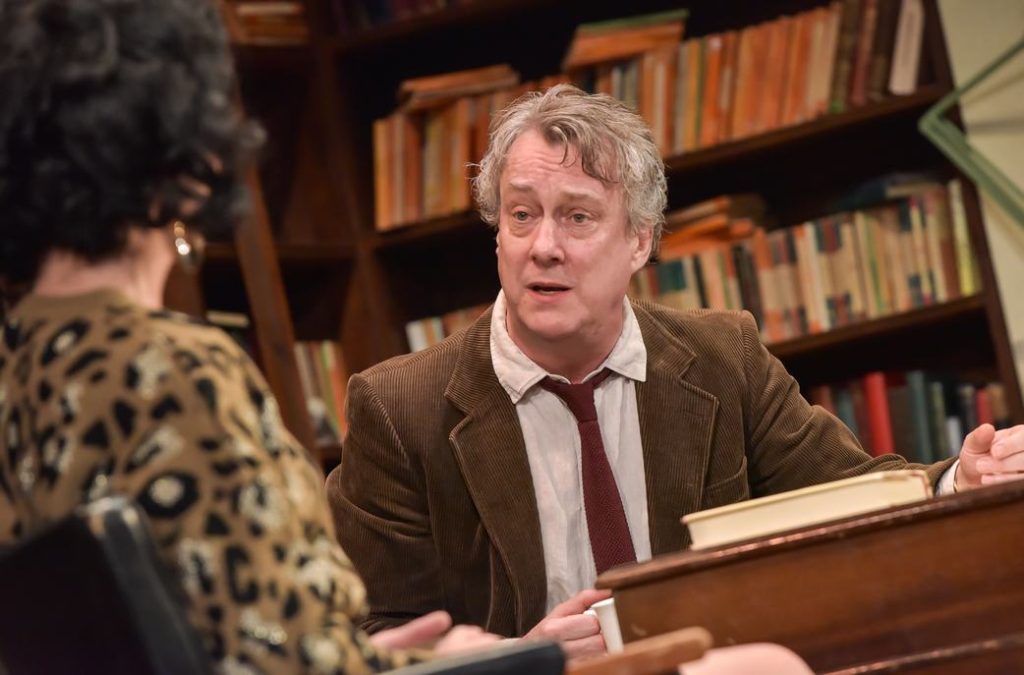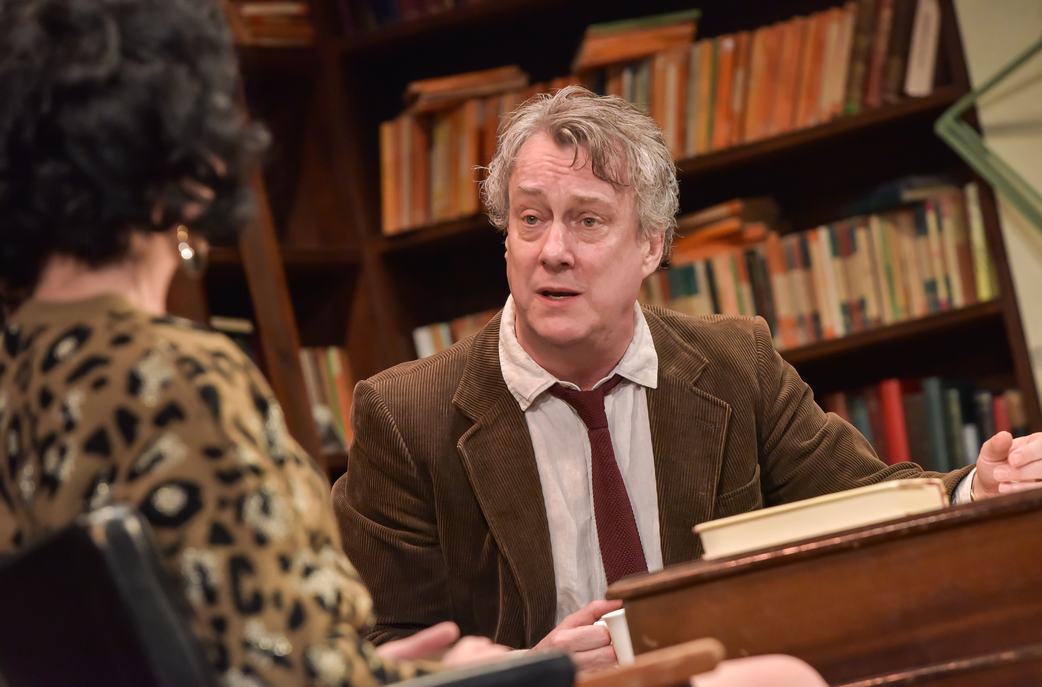
Willy Russell’s Educating Rita is fast approaching its fortieth birthday. Back in 1980 this exceptionally witty two-hander made some trenchant observations about education and social class. A lot has changed since then, both in academia and in society in general, so is this encounter between a garrulous, eager-to-learn hairdresser and an alcoholic, world-weary lecturer merely a charming period piece, or does it still have something important to say? Perhaps the chief danger for any revival of Educating Rita is that its arguments about class, culture and the purpose of education have become too familiar, having been presented in one form or another in so many plays and films. After all, Russell’s opus itself has distinct echoes of Shaw’s Pygmalion, written over one hundred years ago. Hasn’t the idea of a working-class person engaging with ‘high’ culture become rather outdated as a dramatic device? I’m not so sure. Rita’s off-stage husband may strike us a being rather old-fashioned in his book-burning hostility to her academic aspirations, but we should not forget that there are sections of our society today where the idea of a woman gaining independence and a degree of freedom through education is still met with the sternest disapproval. The disproportionally low percentage of working-class students attending our most prestigious universities remains an apparently intractable problem, with some social groups barely represented at all in higher education.
However, setting aside its underlying socio-political themes, there is no doubt that Educating Rita is primarily the story of a chalk-and-cheese relationship, and any production stands or falls on how convincingly and amusingly that clash of opposites is presented. Stephen Tompkinson would seem to have a particular talent for portraying wordsmiths under stress, as he did in his recent portrayal of TV scriptwriter Eddie Braben in Eric, Ernie and Me. He is ideally cast as Frank. He vividly conveys this failed poet’s many negative traits, but Frank’s self-loathing never becomes repellent, leavened as it is by a sense that he is not beyond rescue. Set designer Patrick Connellan has created a very impressive study for Frank, featuring wall-to-wall books and a formidably solid desk. It is a cosy fortress where, pouring himself yet another mug of single malt, he can try to keep out some uncomfortable home truths. But Rita bashes on his door, and batters down his defences. She is the bright spark that reignites his passion for teaching.
Jessica Johnson portrays a Rita who is boundless enthusiasm personified. Initially she is a bundle of barely contained energy, teetering on high heels, talking nineteen-to-the-dozen, and too nervous to sit down. Her lack of formal education is obvious, but she’s no fool. Some of this play’s best comic moments come when we see that Rita has a fresh intelligence that is totally unhampered by the rigid conventions of academia. When asked how she would overcome the difficulties presented in staging Ibsen’s Peer Gynt, her pithy response is ‘Do it on the radio’. Frank’s task is to teach her how to play by the rules, stultifying though that process may be. There is a neat symmetry here, with both characters deeply dissatisfied with their current situations. Frank’s ‘It’s myself that I’m not too fond of’ is matched by Rita’s ‘I don’t wanna be meself’. His tuition enables her to discover a comfortable new version of herself, able to discard the pretence of being ‘Rita’ and happy to revert to her real name, ‘Susan’. But she has much to teach Frank, too. Her eagerness to learn and her forthright criticism of all his negativity does him a power of good. Tellingly, there is a role-reversal moment in the second act when she is sat relaxed behind his desk, and it is Frank who paces nervously. Frank’s over-fondness for scotch condemns him to a sabbatical in Australia, but not before the new, self-assured Susan tells him that he’s been a really good teacher. She has given him a degree of self-respect, and he has given her the freedom to make choices.
Jessica Johnson is a marvellously skilled comic actor. She succeeds in making Rita’s rapid transition from mouthy high-heeled hairdresser to dungaree-clad bohemian entirely convincing. Her scouse accent is a thing of beauty, too. Stephen Tompkinson is equally skilled at conveying a character in transition, and his delicately judged portrayal of Frank’s growing affection for Rita is very touching. One sequence that rings very true is where he recognises the unfettered spontaneity and honesty of one of her essays, but then chucks it in the bin because it fails utterly to meet the exam board’s narrow requirements. Having myself practised the dark art of English Literature teaching for many years, I can vouch for the veracity of that scene. Not every moment in Educating Rita is comic, and when Frank condemns his own poetry as second-rate there is a sense of real personal tragedy. It is not clear what lies ahead for either of these characters, but the play ends on a satisfyingly optimistic note.
I guess that these days Educating Rita might be thought of as something of an old warhorse, but under Max Robert’s assured direction this very satisfying revival demonstrates that it still has a great deal to offer. This is a very entertaining show featuring two captivating performances. Catch it if you can. ★★★★☆ Mike Whitton 4th June 2019
Photo by Robert Day


